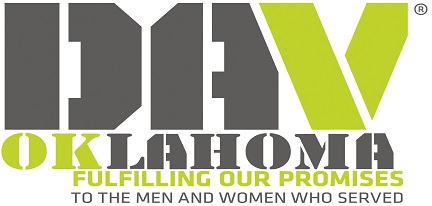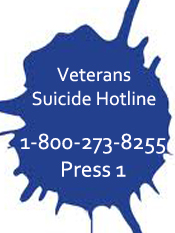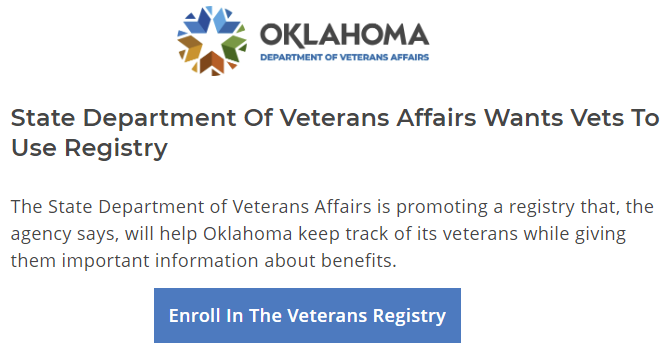According to a June 7 Military Times article by Patricia Kime, a “blue ribbon panel” studying the future of Veterans Affairs health care is poised to recommend an overhaul to the system that would create a structure similar to the Pentagon’s Tricare program, where veterans could choose to use either the VA for their care or see a network provider.
Under the draft of the commission’s final report, all veterans enrolled in VA care would choose a primary care provider at the VA or from a civilian network. The plan would do away with the 30-day and 40-mile restrictions of the Veterans Choice program and create networks of physicians to care for former troops who prefer to see non-VA doctors.
The report also calls for giving some veterans who received other than honorable discharges access to VA health services. Under the draft, troops who have “substantial honorable service” before they got bad paper discharges would be considered for VA health care eligibility.
Commission on care to propose new vets healthcare system:
VA Secretary provides relief for Veterans with Traumatic Brain Injuries:
Secretary of Veterans Affairs Robert McDonald has granted equitable relief to more than 24,000 Veterans following a national review of Traumatic Brain Injury (TBI) medical examinations conducted in connection with disability compensation claims processed between 2007 and 2015.
This action by the Secretary allows the Department of Veterans Affairs (VA) to offer new TBI examinations to Veterans whose initial examination for TBI was not conducted by one of four designated medical specialists and provides them with the opportunity to have their claims reprocessed. Equitable relief is a unique legal remedy that allows the Secretary to correct an injustice to a claimant where VA is not otherwise authorized to do so within the scope of the law.
“Traumatic Brain Injury is a signature injury in Veterans returning from the conflicts in Iraq and Afghanistan, and VA is proud to be an organization that sets the bar high for supporting these, and all, Veterans,” said Secretary McDonald. “Providing support for Veterans suffering from a TBI is a priority and a privilege, and we must make certain they receive a just and fair rating for their disabilities.”
To ensure that TBI is properly evaluated for disability compensation purposes, VA developed a policy in 2007 requiring that one of four specialists – a psychiatrist, physiatrist, neurosurgeon or neurologist – complete TBI exams when VA does not have a prior diagnosis.
Information and Benefits Seminar
Free Veterans Information Seminar
When
Tuesday June 14th
Starts at 3:30 p.m.
Where
In the Grand Hall of the Cherokees
At the
Hard Rock Hotel & Casino
777 West Cherokee St
Catoosa, OK
Why
If you served in the Armed Forces, you might be eligible for earned benefits and services; whether your service was overseas or stateside.
Immediately following the Seminar there will be Certified Service Officers on site to assist you in filing a claim or answering your questions on an existing claim or in general.
If you have your DD 214 or any other supporting records bring them; however, they are not required to initiate a claim they just help.
For additional information call 918-261-9233 or email adj@okdav.org
Homeless Assistance Bill Introduced
Senator Richard Blumenthal introduced S. 1885, the Veteran Housing Stability Act of 2015. This bill would expand service and assistance to include veterans who are homeless, at risk of becoming homeless, and veterans with very low incomes. This expansion would also include veterans moving into transition housing, and eventually gaining permanent residential occupancy. In addition, this bill would expand the current definition of “covered veteran” to include a veteran who is enrolled in the VA homeless registry.
This legislation would require VA to implement case management oversight for veterans enrolled in the homeless registry, and participating in programs falling under the homeless veteran category.. The bill would also designate intense case management sites in three locations with the highest homeless veteran populations, and three in suburban or rural areas. It would also permanently authorize the National Center for Homelessness Among Veterans.
The bill would require VA to conduct outreach, educating housing authorities and others with resources relative to housing about the needs of veterans, and the benefits of having veterans as tenants, and to build upon community relationships. This bill would establish criteria to use in determining success or failure of the services provided, and would require related reports.
Please write your Senators today to urge their co-sponsorship and enactment of this important bill. As always, thank you for your advocacy in participating in the DAV Commander’s Action Network.
Click the link below to log in and send your message:
https://www.votervoice.net/BroadcastLinks/jWvKYsFnGznReS1O06QRGA
Health Care Update from VA
VA Health Care Official Announces Initiatives and Progress Made
to Improve Access to Care
New Initiatives Chart Roadmap to Access-to-Care Improvements
WASHINGTON – The Department of Veterans Affairs’ (VA) top health care official today announced progress and new steps VA is taking to improve Veterans access to health care. Dr. David J. Shulkin, Under Secretary for Health, announced the measures during a briefing to a group of more than 100 journalists attending the Association of Health Care Journalists’ conference April 8 in Cleveland, Ohio.
“We are working to rebuild the trust of the American public and more importantly the trust of the Veterans whom we are proud to serve,” said Dr. Shulkin. “We are taking action and are seeing the results. We are serious about our work to improve access to health care for our nation’s Veterans. We want them to know that this is a new VA.”
During the briefing, Dr Shulkin discussed a new initiative, MyVA Access. MyVA Access represents a major shift for VA by putting Veterans more in control of how they receive their health care. It is a top priority for VA’s Veterans Health Administration (VHA).
MyVA Access is a declaration from VHA employees to the Veterans they care for; it is a call to action and the reaffirmation of the core mission to provide quality care to Veterans, and to offer that care as soon as possible to Veterans how and where they desire to receive that care. The initiative ensures that the entire VA health care system is engaged in the transformation of VA into a Veteran-centered service organization, incorporating aspirational goals such as same day access to mental health and primary care services for Veterans when it is medically necessary. At present, 34 VA facilities offer same-day appointments, and as a practicing physician, Dr. Shulkin currently sees Veterans needing same-day appointments at the VA Medical Center in Manhattan. VA is hoping to be able to offer same day appointments when it is medically necessary at all of its medical centers by the end of 2016.
In addition, Dr. Shulkin introduced a new smart phone app called the Veteran Appointment Request App. This app allows Veterans to view, schedule and cancel primary care and mental health appointments as well as track the status of the appointment request and review upcoming appointments. It is currently available in 10 locations and has received positive feedback from the vast majority of Veterans using the app. VA expects to make the app available to all Veterans by early 2017.
Other efforts underway include a website enhancement that will allow Veterans to check wait times in real time where ever they live – this includes new and existing patients and a new, easy-to-use scheduling software program. The new program is being piloted in 10 sites and is expected to reduce scheduling errors and enhance VA’s ability to measure and track supply, demand and usage.
MyVA Access is part of MyVA, introduced in 2014 by VA Secretary Robert McDonald following one of the most challenging times in the history of VA. MyVA is centered around the needs of Veterans by putting them first in everything VA does. Since that time, VA has made significant progress in addition to the new initiatives announced by Dr. Shulkin.
Among the health care progress made:
- Nationally, VA completed more than 57.36 million appointments from March 1, 2015 through February 29, 2016. This represents an increase of 1.6 million more appointments than were completed during the same time period in 2014/2015.
- VHA and Choice contractors created over 3 million authorizations for Veterans to receive care in the private sector from February 1, 2015 through January 31, 2016. This represents a 12 percent increase in authorizations when compared to the same period in 2014/2015.
- From FY 2014 to FY 2015, Community Care appointments increased approximately 20 percent from 17.7 million in FY 2014 to 21.3 million in FY 2015.
- VA completed 96.46 percent of appointments in February 2016 within 30 days of clinically indicated or Veteran’s preferred date.
- In FY 2015, VA activated 2.2 million square feet of space for clinical, mental health, long-term care, and associated support facilities to care for Veterans.
- VA held two Access Stand Downs, focusing on patients with the most urgent health care needs first. During a nationwide Access Stand Down that took place on February 27, the one-day event resulted in VA reviewing the records of more than 80,000 Veterans to get those waiting for urgent care off wait lists; 93 percent of Veterans waiting for urgent care were contacted, with many receiving earlier appointments.
- VA increased its total clinical work (direct patient care) by 10 percent over the last two years as measured by private sector standards (relative value units). This increase translates to roughly 20 million additional provider hours of care for our Veterans.
- VA is also working to increase clinical staff, add space and locations in areas where demand is increasing and extending clinic hours into nights and weekends, all of which have helped increase access to care even as demand for services increases.
- VA is addressing critical components necessary for the delivery of a seamless community care experience by consolidating all purchased care programs into one Veterans Choice Program (New VCP). The New VCP will clarify eligibility requirements, strengthen VA’s high-performing network, streamline clinical and administrative processes, and implement a care coordination model across the continuum of care.
- VHA offers an extensive community provider network of over 257,000providers through the PC3/Choice Programs and more are joining each month.
- VA Telehealth services are critical to expanding access to VA care in more than 45 clinical areas.
- In FY2015, 12 percent of all Veterans enrolled for VA care received Telehealth based care. This includes 2.14 million telehealth visits, touching 677,000 Veterans.
VA Vet Choice Program:
At a hearing of the House Veterans Affairs Health Subcommittee in late MAR representatives of the Department of
Veterans Affairs explained how the VA plans to manage an overhaul of the VA’s new Choice Program. According to
an article on Federal News Radio.com, the VA wants to “let veterans choose whether they want to access a VA medical
center or a private sector provider in the community for care. If the veteran chooses community care, he or she can
pick a VA-approved provider from the network list.” The VA would organize a list of providers into three tiers:
• The first tier would consist of VA medical centers, DoD medical facilities, Indian Health Service medical
facilities, Tribal health programs and federally qualified health center providers.
• The second tier would be community health care providers which will have been rated by the VA as the top in the quality of the health care they give.
• The third tier would be other community health care providers who would meet standard VA criteria.
Military Records/DD-214:
The National Personnel Records Center (NPRC) has provided the following website for veterans to gain access to their DD-214s online: http://vetrecs.archives.gov or try http://www.archives.gov/veterans/military-service-records. This may be particularly helpful when a veteran needs a copy of his DD-214 for employment purposes. NPRC is working to make it easier for veterans with computers and Internet access to obtain copies of documents from their military files. Military veterans and the next of kin of deceased former military members may now use a new online military personnel records system to request documents. Other individuals with a need for documents must still complete the Standard Form 180, which can be downloaded from the online web site. Because the requester will be asked to supply all information essential for NPRC to process the request, delays that normally occur when NPRC has to ask veterans for additional information will be minimized. The new web-based application was designed to provide better service on these requests by eliminating the records centers mailroom and processing time.
Assistance with Choice Program Billing Issues
VA Announces Community Care Call Center to Help Veterans with
Choice Program Billing Issues
WASHINGTON – Veterans can now work directly with the Department of Veterans Affairs (VA) to resolve debt collection issues resulting from inappropriate or delayed Choice Program billing. In step with MyVA’s efforts to modernize VA’s customer-focused, Veteran-centered services capabilities, a Community Care Call Center has been set up for Veterans experiencing adverse credit reporting or debt collection resulting from inappropriately billed Choice Program claims. Veterans experiencing these problems can call 1-877-881-7618 for assistance.
“As a result of the Veterans Choice Program, community providers have seen thousands of Veterans. We continue to work to make the program more Veteran-friendly,” said Dr. David Shulkin, Under Secretary for Health. “There should be no bureaucratic burden that stands in the way of Veterans getting care.”
The new call center will work to resolve instances of improper Veteran billing and assist community care medical providers with delayed payments. VA staff are also trained and ready to work with the medical providers to expunge adverse credit reporting on Veterans resulting from delayed payments to providers.VA is urging Veterans to continue working with their VA primary care team to obtain necessary health care services regardless of adverse credit reporting or debt collection activity.
VA acknowledges that delayed payments and inappropriately billed claims are unacceptable and have caused stress for Veterans and providers alike. The new call center is the first step in addressing these issues. VA presented The Plan to Consolidate Community Care in October of 2015 that outlines additional solutions to streamline processes and improve timely provider payment.
For more details about the Veterans Choice Program and VA’s progress, visit: www.va.gov/opa/choiceact . Veterans seeking to use the Veterans Choice Program can call1-866-606-8198 to find out more about the program, confirm their eligibility and schedule an appointment.
Blue Water Navy
The Blue Water Navy Vietnam Veterans Act of 2015 (H.R. 969 and S. 681) was introduced by Representative Christopher Gibson and Senator Kristin Gillibrand, respectively. This legislation would expand presumptions for Vietnam Veterans to be awarded service connection for illnesses and diseases associated with exposure to herbicides containing dioxin, including Agent Orange. This legislation would extend eligibility to Vietnam veterans who served in the vicinity of Vietnam, including the inland waterways, ports, harbors, and waters offshore or territorial seas of Vietnam, as well as in the airspace above, during the period of war.
As of March 15, 2016, H.R. 969 has 305 cosponsors and has been referred to the House Veterans’ Affairs Subcommittee on Disability Assistance and Memorial Affairs. S. 681 has 39 cosponsors and is pending before the Senate Veterans’ Affairs Committee.
DAV supports these measures, which are is in line with DAV Resolution No. 018, passed at our most recent National Convention. Please take a moment to send the prepared e-mail to your legislators to seek their support for this legislation.
Also, the Blue Water Navy Vietnam Veterans Association has launched a petition drive in support of this bill. We recommend you support this petition as a part of your advocacy to pass this important legislation.
As always, thank you for your support.
Click the link below to log in and send your message:
https://www.votervoice.net/BroadcastLinks/ujNfi_8TLlkzp9j_WjEtNA




